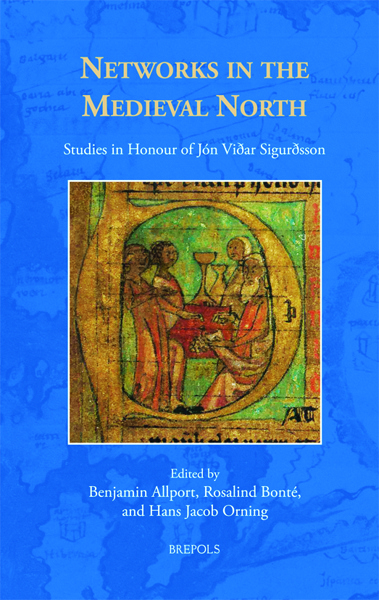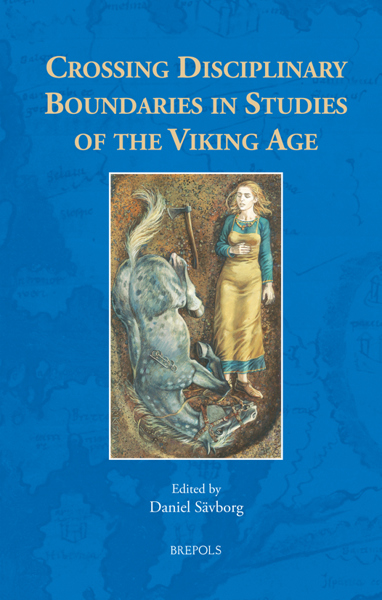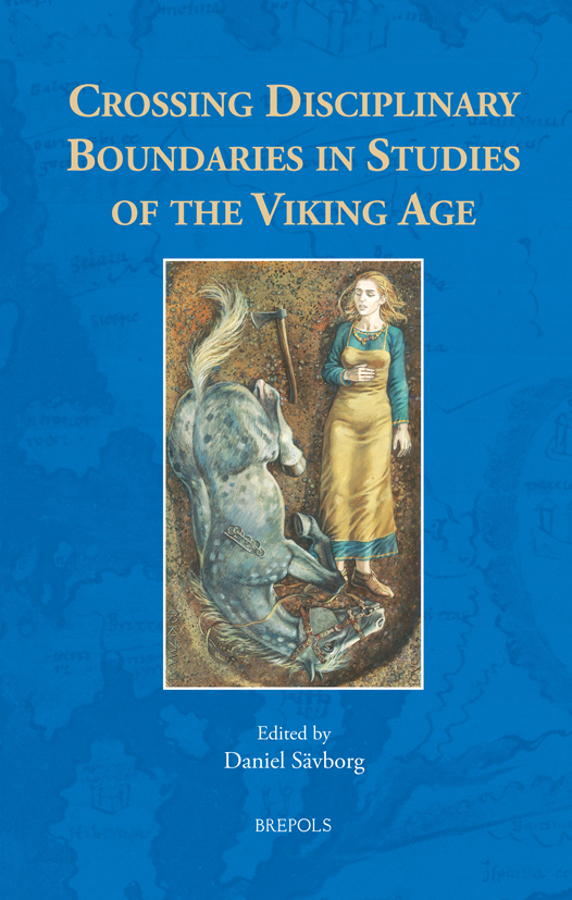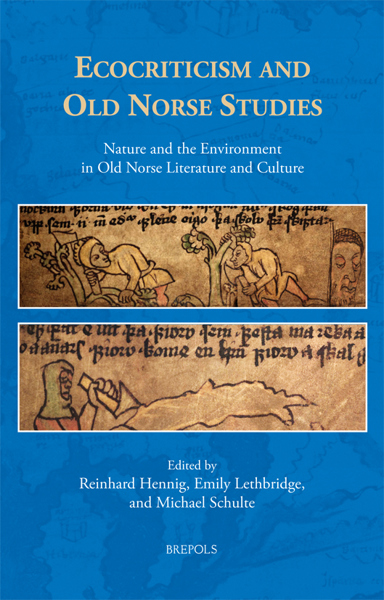
Crossing Disciplinary Boundaries in Studies of the Viking Age
Daniel Sävborg (ed)
- Pages: 365 p.
- Size:156 x 234 mm
- Illustrations:1 b/w, 10 col., 1 tables b/w., 1 maps b/w, 1 maps color
- Language(s):English
- Publication Year:2022
- € 90,00 EXCL. VAT RETAIL PRICE
- ISBN: 978-2-503-59296-1
- Hardback
- Available
- € 90,00 EXCL. VAT RETAIL PRICE
- ISBN: 978-2-503-59297-8
- E-book
- Available
This book aims to stimulate to a constructive discussion on the advantages of interdisciplinary research in Viking Age studies and of various methods of solving the problems connected with it.
“Presented as an attempt to both champion and problematise interdisciplinarity in Viking Studies, this book of 12 chapters appropriately manages to be many things at once: a timely and thoughtful exploration of how this most fashionable and amorphous concept can and should inform the study of late-prehistoric/early-medieval Scandinavia, a collection of chapters on disparate Viking themes, and a quiet assertion of the primacy of the historical-linguistic complex of disciplines in driving the research agenda.” (THOMAS WILLIAMS, in Medieval Archaeology, 67/2, 2023, p. 510)
"The representation of a vast array of disciplines enables individual authors to provide significant insights into the complexities of Norse culture, religion, and society. Both the individual essays (with their distinct methodological approaches) and the collection as a whole (in which an array of experts, as well as chronological and geographical interests, are represented) achieve Sävborg’s goal of interdisciplinarity and successfully promote the value of interdisciplinarity in Norse studies. For these reasons, this book is not only recommended to historians of the Viking Age, but to scholars interested in different methodological approaches to historical enquiry." (Grace Waye-Harris, in Parergon, 42/2, 2025, p. 240)
Daniel Sävborg (editor) is Professor of Scandinavian Studies at the University of Tartu. He got his PhD from Stockholm University in 1997 and has since then published c. 70 works within the field of Scandinavian studies, mostly concerning Old Norse literature, manuscript philology, Scandinavian folklore, and medieval Swedish history.
What happens when scholars cross outside the perceived ‘boundaries’ of their discipline? What problems arise when a scholar trained in one field employs materials or methodologies from an adjacent subject area, engaging with new sources, research methodologies, and traditions, and how can such issues be resolved? Taking as its starting point the increasing shift towards interdisciplinarity seen within Viking-age studies, this collection of essays aims to explore the benefits and pitfalls that can arise from crossing disciplinary borders in this area, and to gain new knowledge about how to address issues that have occurred in previous examples of interdisciplinary combinations. The volume draws together contributions from authors in different disciplines, among them philology, history, archaeology, literary studies, folklore studies and history of religion, in order to hold a constructive and multi-perspective discussion on the benefits and issues arising from interdisciplinary research in studies of the Viking Age. Together, these chapters aim to bridge the gap that often exists between scholars from adjacent fields of research, and in doing so, to stimulate the trend in interdisciplinary approaches to research that can improve our understanding of the past.
Interdisciplinarity in Viking Age Studies. An Introduction
Daniel Sävborg
Interdisciplinary — Multidisciplinary — Transdisciplinary. Navigating the Wandering Rocks of Trending Terminology on Changeable Tides of Discipline Ideology
Frog
The Legend of the Invitation of Varangian Princes in the Light of Interdisciplinarity
Elena Melnikova
Saga Studies and Slavic-Finnish Archaeology: ‘Bilateral Cooperation’
Tatjana N. Jackson
Crossing Borders between Literature and Toponymy. The Narrative Landscape of Hvolsvöllur and its Implications
Matthias Egeler
Women and Swords in the Viking Age. An Interdisciplinary Study of an Archaeological and Textual Motif
Leszek Gardela
‘Many big ships and excellently well fitted…’. A Case Study of Norse Vessels in Hákonar saga Hákonarsonar c. 1204–1263
William Pidzamecky
Interdisciplinary Research in the Study of Human Sacrifices in Late Iron Age Scandinavia
Klas Wikström af Edholm
The Royal Erfi-Feast, Inauguration at the High-Seat, and Genealogical Knowledge in Viking Age Scandinavia. An Interdisciplinary Approach
Olof Sundqvist
Some Thoughts on the Category of Religion in Research of Viking Age Scandinavia
Andreas Nordberg
Molding Myth and Memory. The Plasticity of Old Norse/Icelandic Traditional Tales
Annette Lassen
Old Norse Religion and the Troublesome Quest for an Interdisciplinary Approach
Henrik Janson




